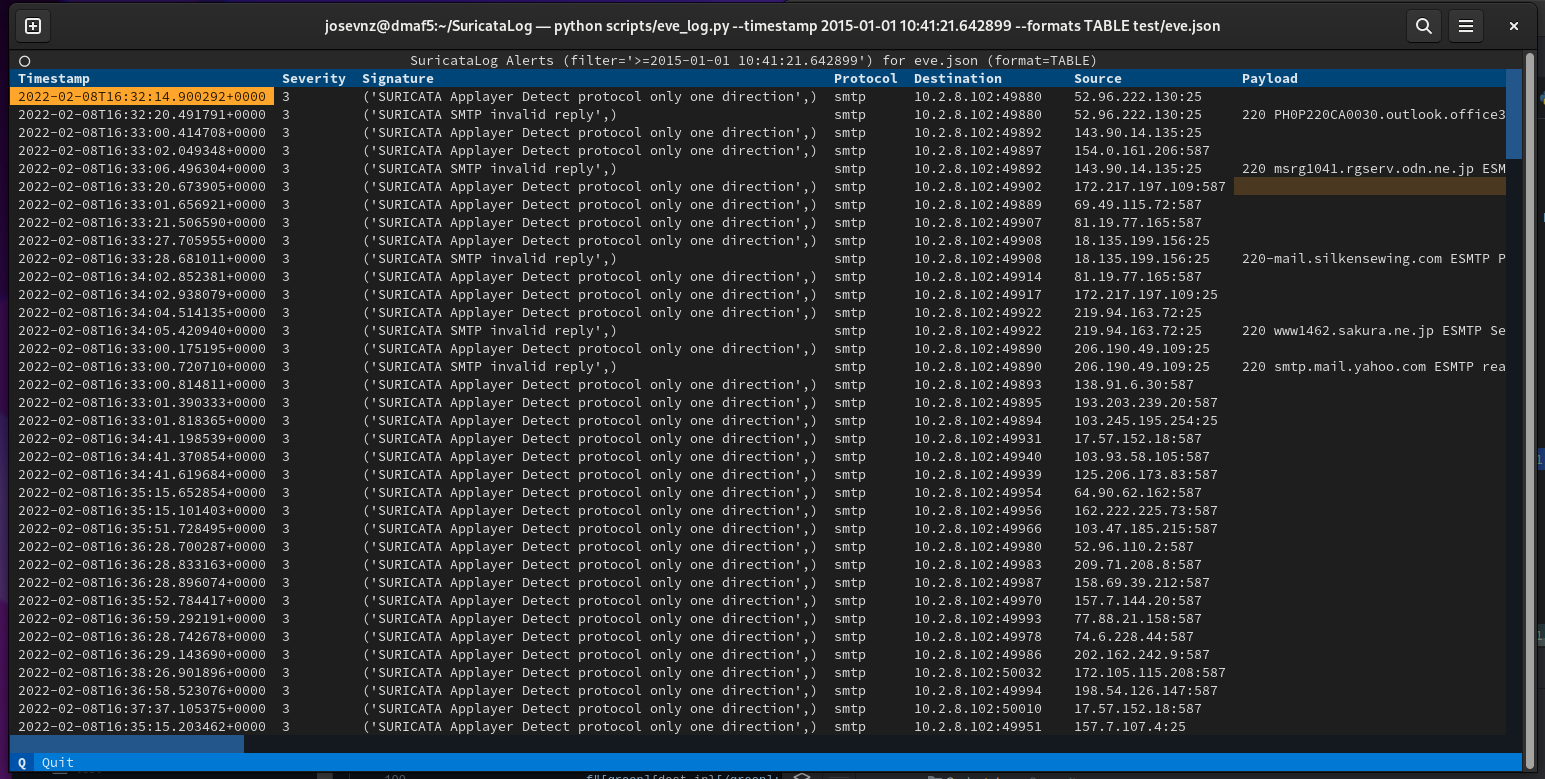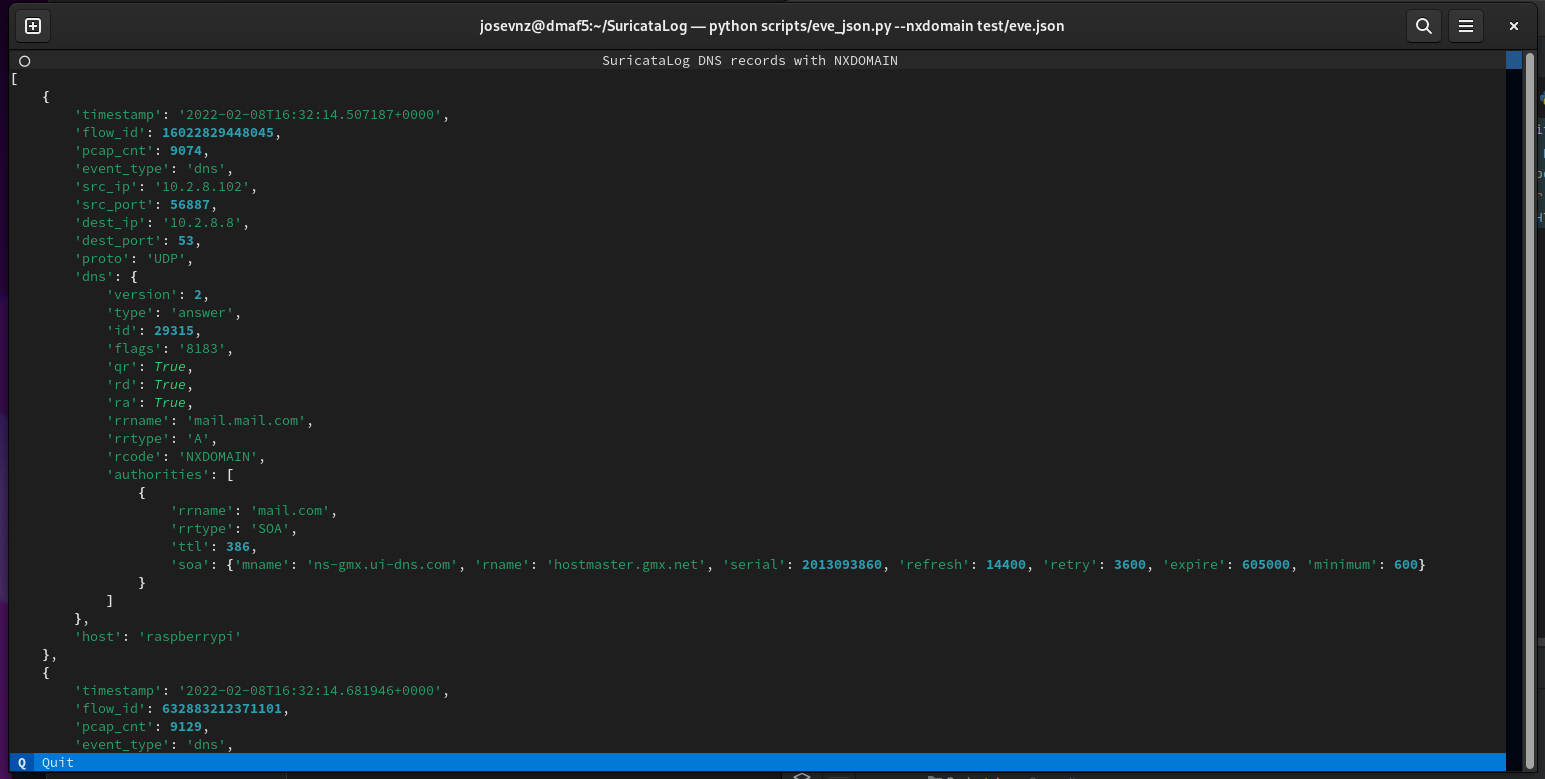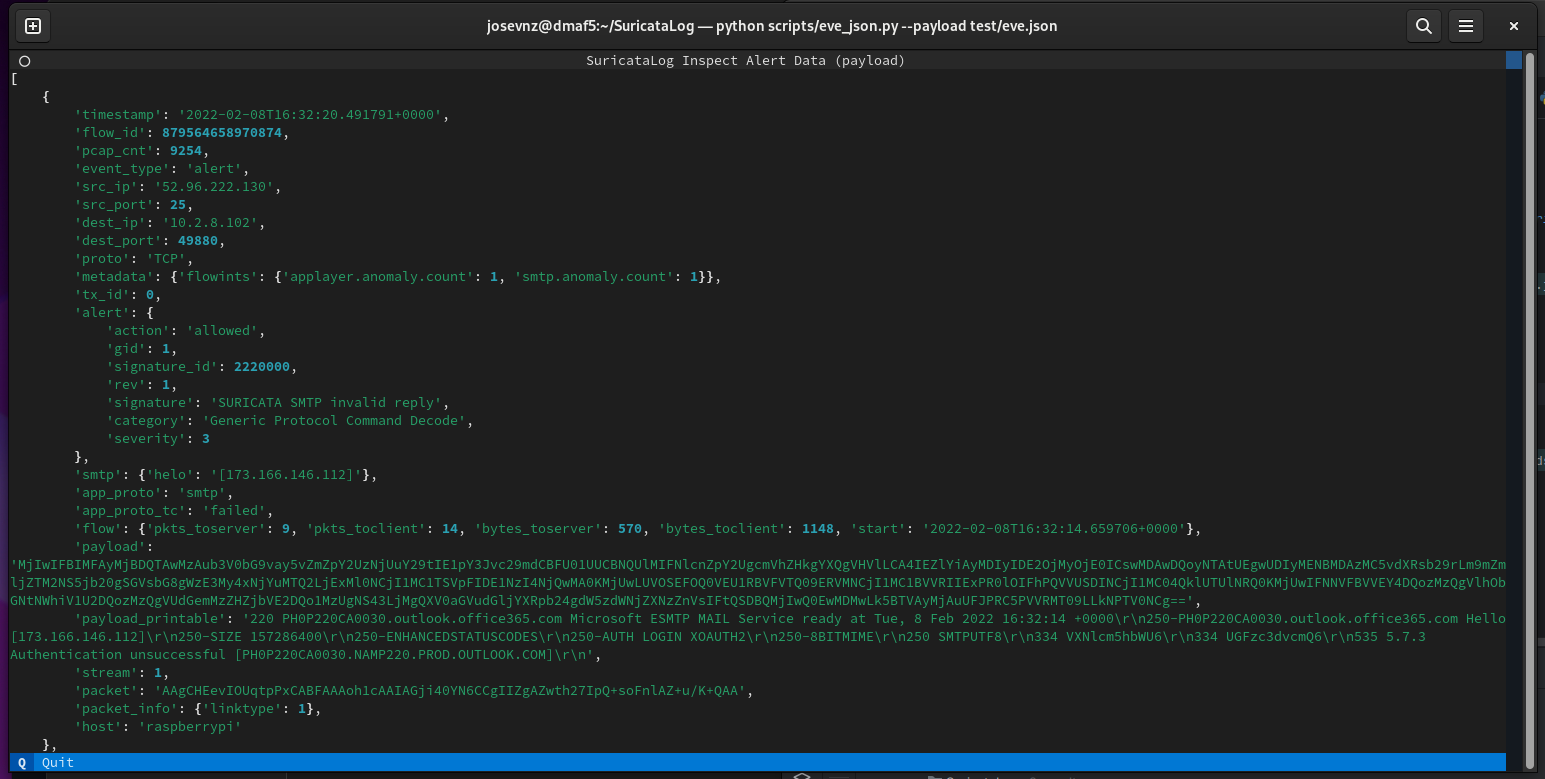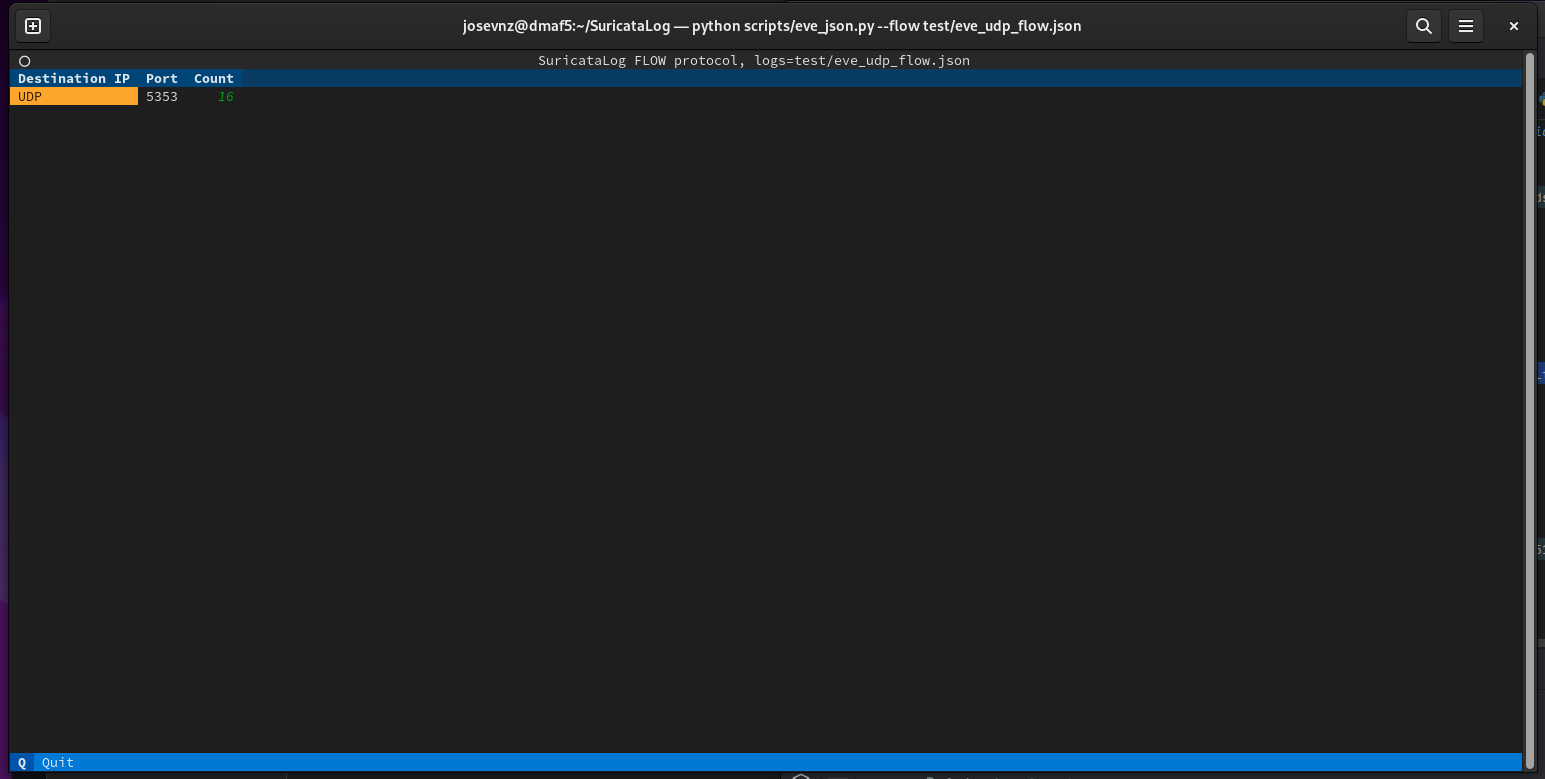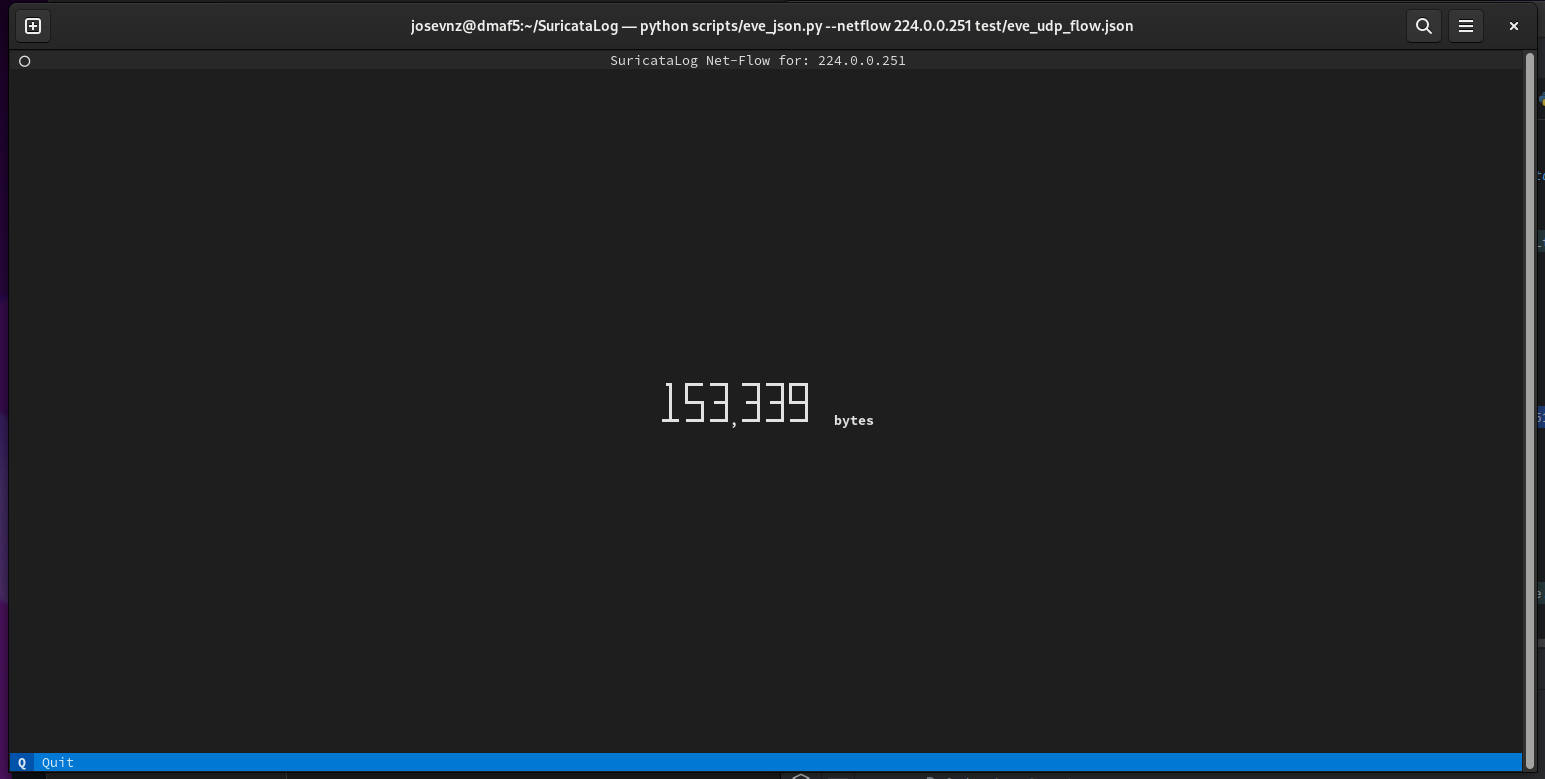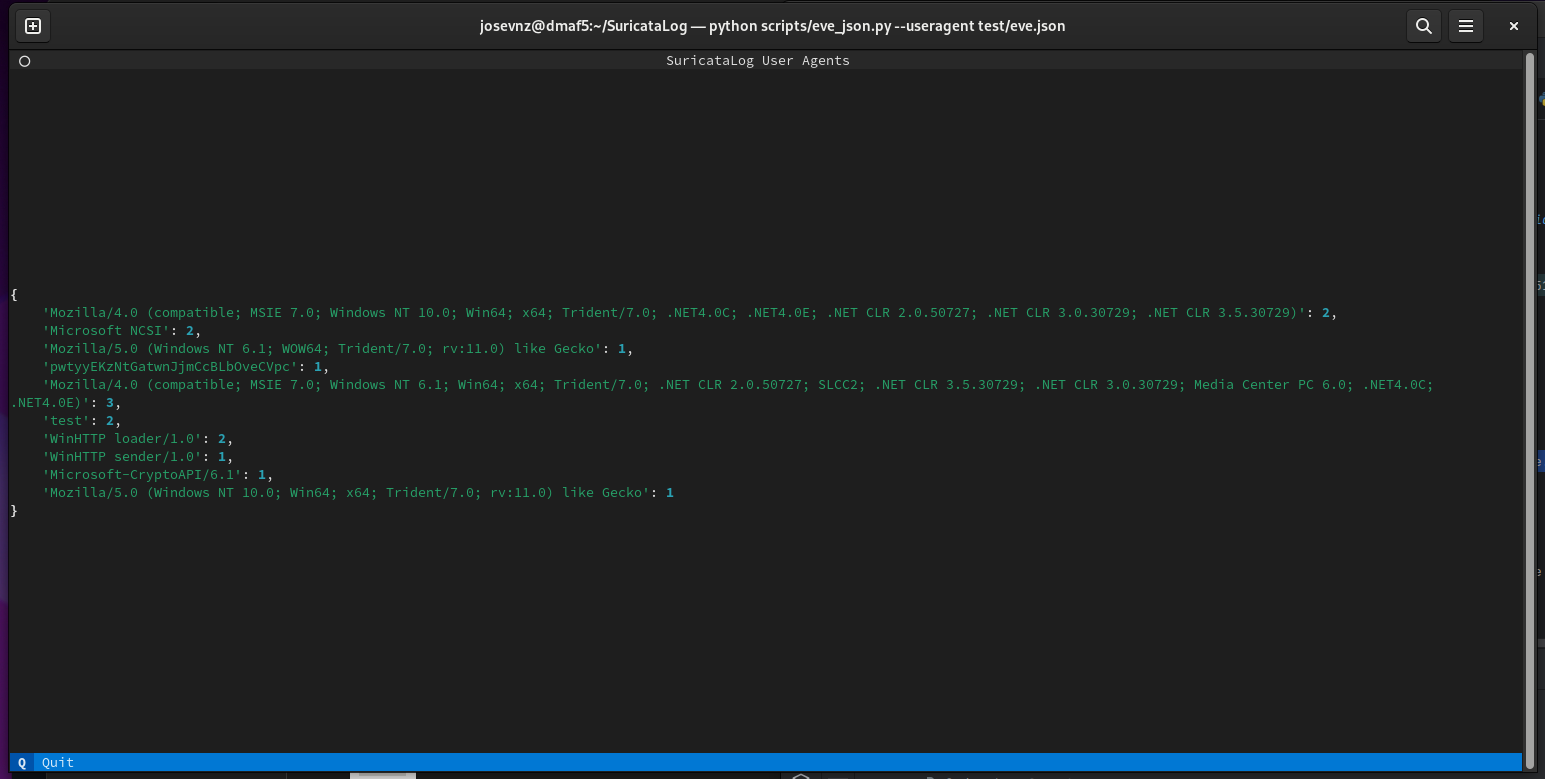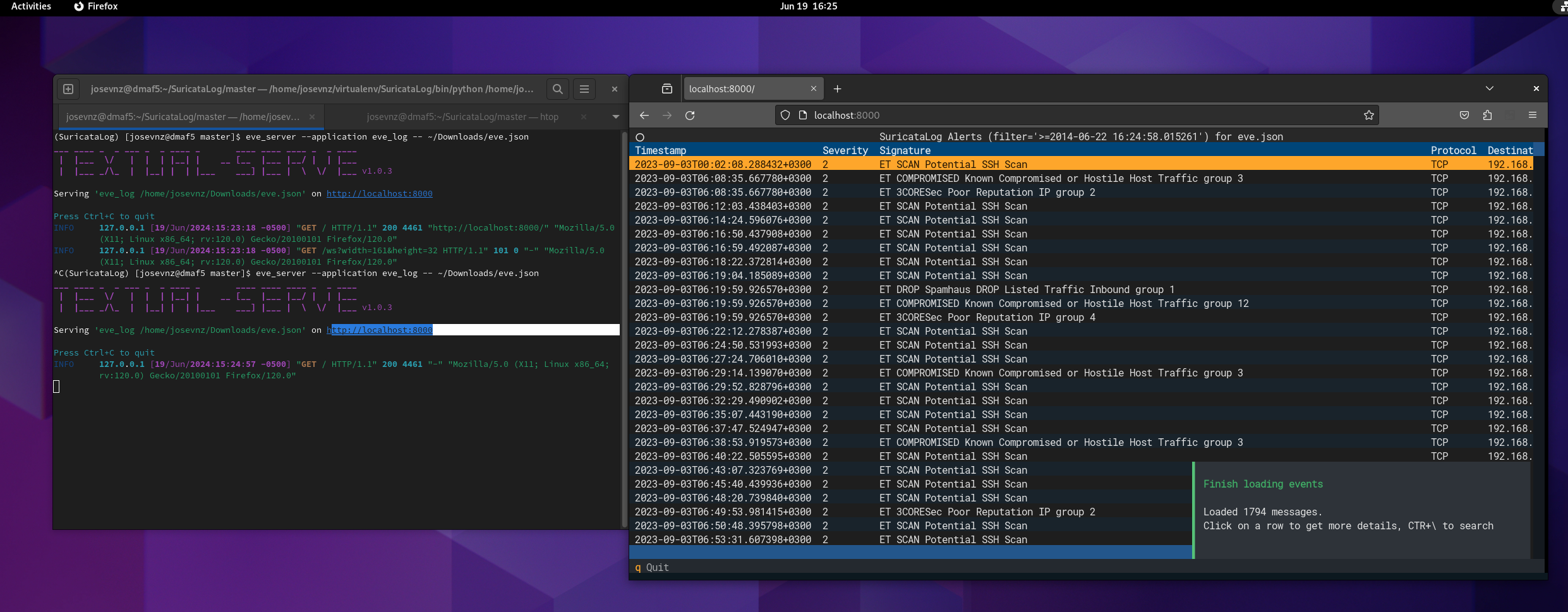When I started learning how to use Suricata quickly found that I needed a tool to inspect the eve.json file; Most of the tutorials and documentation out there suggested installing a stack to do the following tasks:
- Store the logs in a central location
- Normalize and enrich the events, specially alerts
- Use a frontend to dive into the data
Which is very useful, but what if I just needed to do a quick inspection of the events?
Sooner or later you will get bored to death doing this:
cat eve.json | jq -r -c 'select(.event_type=="alert")|.payload'| base64 --decodeSuricataLog is a set of tools/ scripts to parse and display Suricata log files (like /var/log/suricata/eve.json)
The Eve JSON format is not very complex, so I wrote few scripts with the features I tough would be more useful for my home network analysis.
As a bonus, I wrote my learning experience as a tutorial that you can use to learn about Suricata and also how to test it.
Before you do anything else, make sure your environment is good to go:
python3 -m venv ~/virtualenv/suricatalog
. ~/virtualenv/suricatalog/bin/activate
python3 -m pip install --upgrade pip setuptools wheelpip3 install --upgrade SuricataLoggit clone git@github.com:josevnz/SuricataLog.git
cd SuricataLog
python3 -m venv ~/virtualenv/suricatalog
. ~/virtualenv/suricatalog/bin/activate
python3 -m pip install --upgrade build
python3 -m build
pip3 install dist/SuricataLog-X.Y.Z-py3-none-any.whlSo you want to contribute? Or found a bug and think you can submit a patch? Nice! Here is what you can dd to run on development mode:
git clone git@github.com:josevnz/SuricataLog.git
cd SuricataLog
python3 -m venv ~/virtualenv/suricatalog
. ~/virtualenv/suricatalog/bin/activate
pip install --upgrade pip
python -m pip install --upgrade build
pip install textual-dev
pip install --editable .Running unit tests is very easy after that:
(SuricataLog) [josevnz@dmaf5 SuricataLog]$ python -m unittest test/*.py
.........
----------------------------------------------------------------------
Ran 9 tests in 0.334s
OKIf the unit tests fails, then this is most likely the first place to fix a problem.
I do recommend also running the textualize console and watch for the console messages:
textual consoleThen on another terminal:
textual run --dev --command eve_log --timestamp '2015-01-01 10:41:21.642899' --formats TABLE test/eve.jsonPlease check DOCKER.md for more details.
Once everything is installed in your virtual environment you should be able to call the scripts
Better see it by yourself (remember, use --help to learn what options are supported)
eve_log --timestamp '2015-01-01 10:41:21.642899' --formats TABLE test/eve.json(suricatalog) [josevnz@dmaf5 SuricataLog]$ eve_json --help
usage: eve_json [-h] [--nxdomain | --payload | --flow | --netflow NETFLOW | --useragent] eve [eve ...]
This script is inspired by the examples provided on [15.1.3. Eve JSON ‘jq’ Examples](https://suricata.readthedocs.io/en/suricata-6.0.0/output/eve/eve-json-
examplesjq.html) A few things: * The output uses colorized JSON
positional arguments:
eve Path to one or more /var/log/suricata/eve.json file to parse.
optional arguments:
-h, --help show this help message and exit
--nxdomain Show DNS records with NXDOMAIN
--payload Show alerts with a printable payload
--flow Aggregated flow report per protocol and destination port
--netflow NETFLOW Get the netflow for a given IP address
--useragent Top user agent in HTTP trafficTake a look at some examples below:
eve_json --nxdomain test/eve.jsoneve_json --payload ~/Downloads/eve.jsoneve_json --flow test/eve_udp_flow.jsoneve_json --netflow 224.0.0.251 test/eve_udp_flow.jsoneve_json --useragent test/eve.jsonYou can run Suricata Log applications on a browser by using the eve_server wrapper:
# Show the flow report on a eve.json file
eve_server --application eve_json -- --flow ~/eve.json
# Show NX domain report
eve_server --application eve_json -- --nxdomain ~/eve.json
# Inspect the eve.json records
eve_server --applications eve_log -- ~/eve.jsonYou need to pass the '--' to tell the server than this options belong to the underlying eve_* you want to call.
It is also possible to run SuricataLog from a Docker container. Please see the DOCKER.md for more details
I work on this project on my spare time and I cannot support every version of Linux/ Python combination out there. This is my current test bed, and it may change without further notice
| SuricataLog | Supported | OS | Python | Suricata |
|---|---|---|---|---|
| <= 0.8 | NO | NA | < 3.8 | 6.04 |
| 0.9+ | NO | fedora 37 | => 3.11.4 | 6.04 |
| 0.9+ | NO | Armbian 23.02.2 Jammy | => 3.10.6 | 6.04 |
| 0.9+ | NO | Ubuntu 20.04.4 LTS (Focal Fossa) | => 3.8.10 | 6.04 |
| 1.0.3+ | YES | fedora 40 | => 3.11.4 | 7.0.6 |
You are more than welcome to:
- Submit patches with new features and bug-fixes.
- Open bug reports. Be as detailed as possible, otherwise I will have no choice but to close it.
